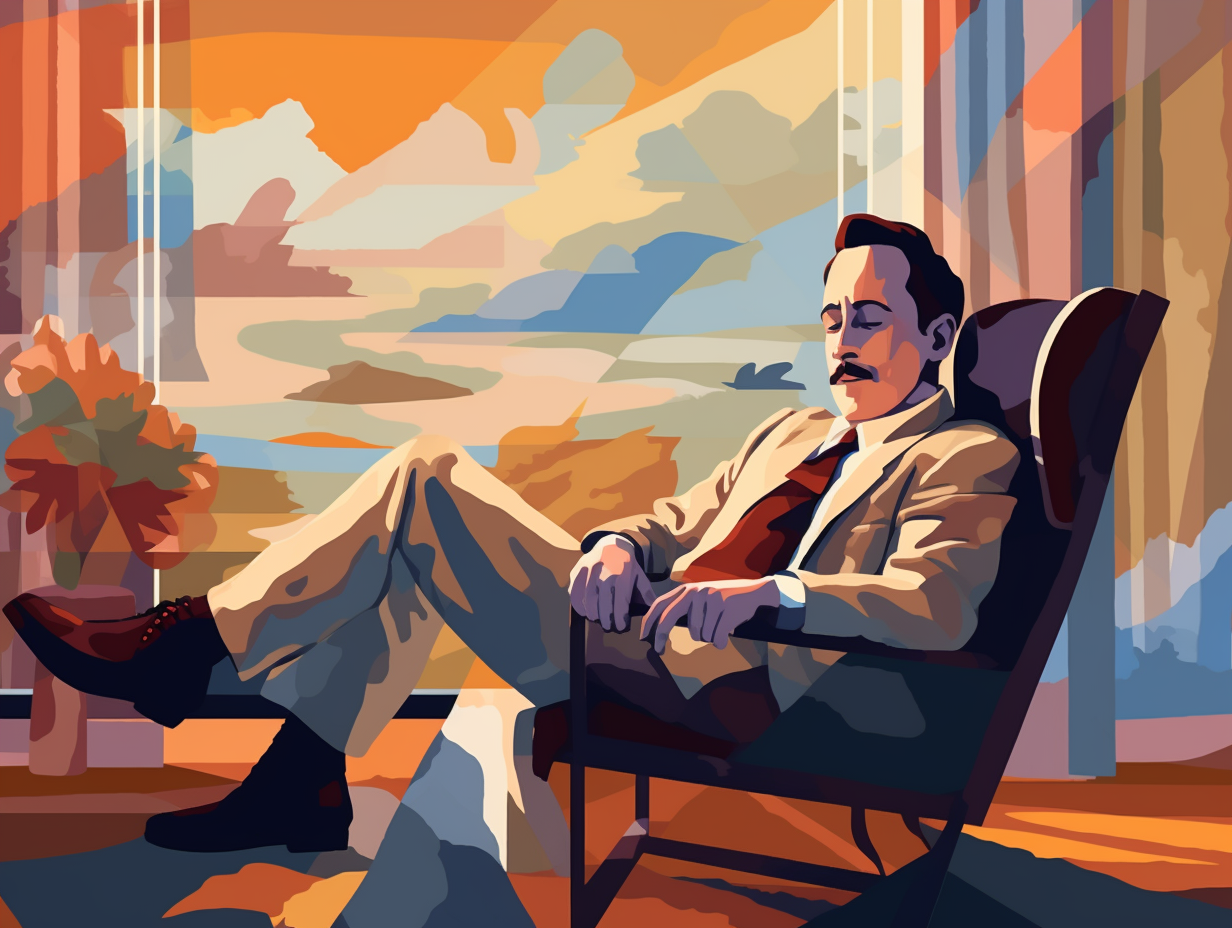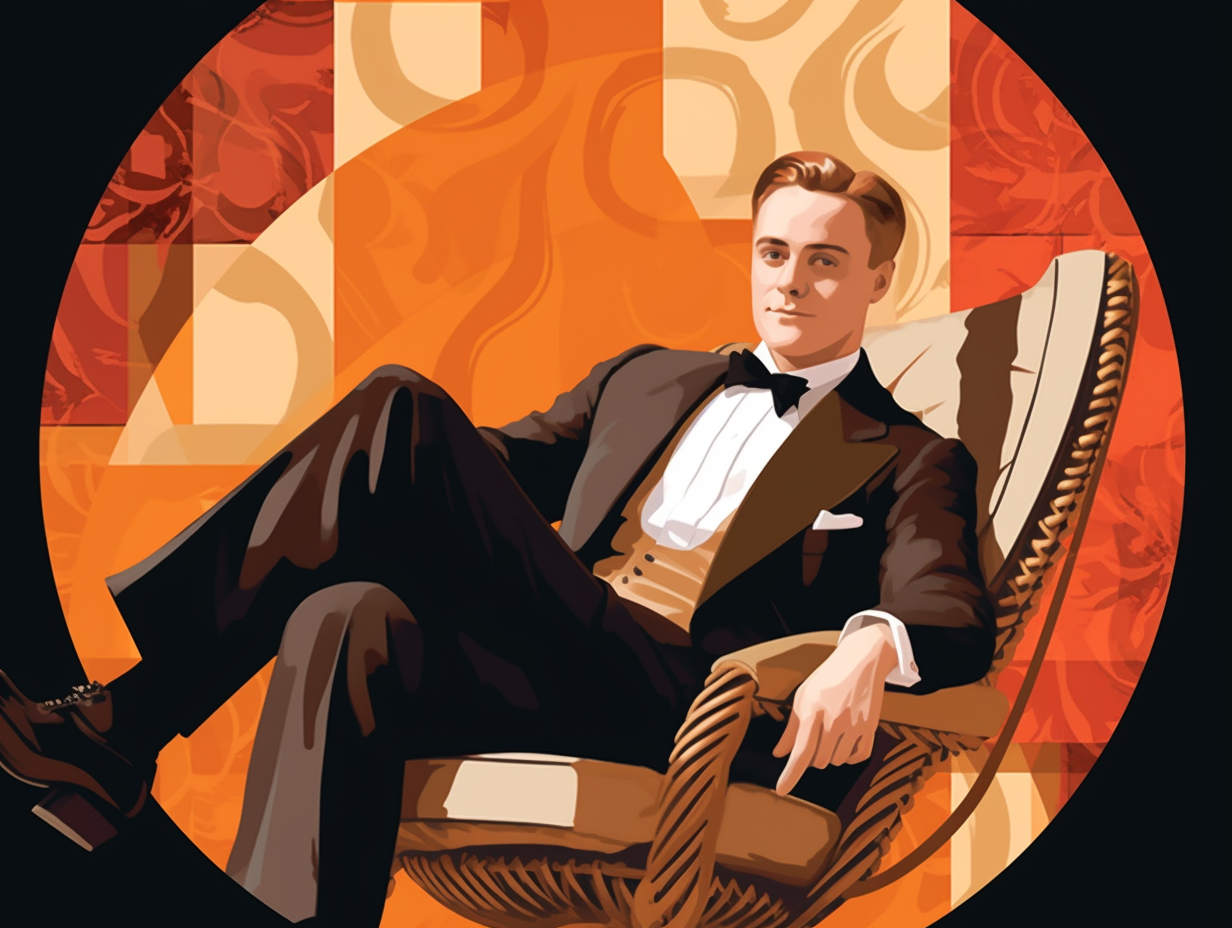12 Enlightening Fun Facts About Philosophy: Expand Your Mind and Impress Your Friends!

1. Descartes: Ironically French
If Descartes were alive today, he might've said, "You're only French if you think you are": In reality, he wasn't actually French, but was born in the town of La Haye en Touraine, now Descartes, France – making it ironic that his famous phrase, "Cogito, ergo sum" or "I think, therefore I am" was originally published in French as "Je pense, donc je suis" in his 1637 Discourse on the Method and later appeared in Latin in his Principles of Philosophy.
Source => en.wikipedia.org
2. Plato: Art Critic & Censor
Did you hear the one about the philosopher who walked into a museum? He couldn't decide whether to paint the town red or censor everything in sight! But seriously: Plato, while advocating for censorship of certain art forms in his ideal Republic, also believed in the power of art to reveal truth and form character – embodying a contradiction as dazzling as one of his toga parties.
Source => users.rowan.edu

Did you know Plato's nickname "Platon" might be because of his broad shoulders or eloquent speaking? Discover the intriguing origins of this legendary philosopher's name!
=> Fun Facts about Plato
3. Montaigne: Mayor & Wine Merchant
While Montaigne wasn't exactly a pioneer in Bordeaux's wine scene, he sure had a grape time navigating the political vineyards: The French philosopher served as the mayor of Bordeaux, actively pushing for more social and political engagement in his essays, before opting out (unlike the popular belief) to become a wine merchant.
Source => newyorker.com
4. Aristotle & Marie Kondo: Household Philosophers
What do Aristotle and Marie Kondo have in common? They both know how to spark household joy: In his book "Politics", Aristotle not only asserted that property is an essential part of managing a household with acquiring it being an art but also controversially theorized that some people are born to rule and others to be ruled, justifying slavery as natural in certain circumstances.
Source => wright.edu

5. Pensive Pacing: Aristotle's Style
Remember that classic dad move, pacing around while deep in thought, phone pressed to an ear, solving all the world's problems? Well, Aristotle had that routine down to a science, long before cell phones and coffee-fueled brainstorm sessions: As a proponent of peripatetic philosophy, Aristotle would walk around the Athenian Lyceum, lecturing his students and believing the act of walking to be conducive to critical thinking and engaging dialogue.
Source => medium.com
6. Diogenes: Jar-Dwelling Radical
You've heard of living in a van down by the river, but what about a philosopher who lived in a jar in the town square? Feast your eyes on ancient Greece's original hipster: Diogenes the Cynic called a giant ceramic jar his home, begged for a living, and spent his days trolling society with radical ideas in between sarcastic lamp-lit manhunts: Diogenes' unconventional philosophizing and rejection of societal norms influenced the Cynic school of thought, which later evolved into Stoicism – one of the most enduring schools in Greek philosophy.
Source => en.wikipedia.org
7. Kierkegaard: Tombstone Bingo Champ
In the game of philosophical tombstone bingo, Søren Kierkegaard's grave is the ultimate jackpot: this existential hot spot at Assistens Cemetery in Copenhagen not only scores big with locals and tourists, but even garners pensive Danish men contemplating in front of it, sending observers into a contemplative frenzy, as reported by one curious visitor!
Source => medium.com
8. Kant & Shakespeare: Unexpected Connection
Whoever said truth is stranger than fiction clearly hadn't spotted this curious connection between two famous heavyweights in the intellectual arena: Immanuel Kant and William Shakespeare! Little did Kant know that his musings about the need for a ruler to keep humans from abusing freedom rang in harmony with the antics of Shakespeare's self-absorbed monarch in The Tragedy of King Richard the Second. But alas, the philosophers' fan club is left wanting, for there's no evidence that Kant kept a German adaptation of Shakespeare's works in his collection or that he was an admirer of the playwright.
Source => ivypanda.com
9. Wittgenstein: Philosopher in Disguise
As a philosopher undercover, Ludwig Wittgenstein was always game for "The Wittgenstein-ess Protection Program": This notorious thinker worked incognito as a dispensary porter at Guy's Hospital in London during World War II, sneaking about unrecognized by most hospital staff, dining with doctors, and secretly advising patients on medication management.
Source => alamy.com

10. Aquinas: Alien Hunter
Before E.T. phone home and close encounters of the third kind became all the rage, there was a cosmic philosopher who pondered if the stars were alive with the sound of aliens: Thomas Aquinas, in the 13th century, contemplated the existence of intelligent extraterrestrial life, but he dismissed the idea of multiple worlds like ours and argued that beings composed of earthly elements could not unite as a singular intellectual substance, leaving humanity as the sole species of rational animals.
Source => unav.edu
11. Aristotle & Alexander: Odd Classroom Duo
The Classroom Chronicles: when Aristotle's legendary teaching prowess met the unbridled rebelliousness of his most famous pupil, one might say it was a match made in a Greek philosopher's Olympus. Plot twist: Despite initially portraying the role of 'The Prodigal Student', Alexander the Great made it to 'Conqueror Hall of Fame': Aristotle sure had his hands full with Alexander, who sauntered in and out of his lessons amidst nature at the Temple of the Nymphs. Aristotle honed Alexander's ever-expanding mind with philosophy, logic, art, and a passion for Homer, eventually shaping him into the legendary leader who slayed empires and shared knowledge from Greece to India.
Source => trigiro.com
12. Confucius: Foodie Turned Philosopher
From humble foodie beginnings to ruling the roost: Confucius, often associated with his philosophical teachings, actually held various government positions in his time - including Foodstuffs Scribe, Steward, and even acting Chancellor - before turning to teaching as a means of spreading his beliefs on the importance of moral values and proper behavior in creating harmonious societies.
Source => plato.stanford.edu
Related Fun Facts




















